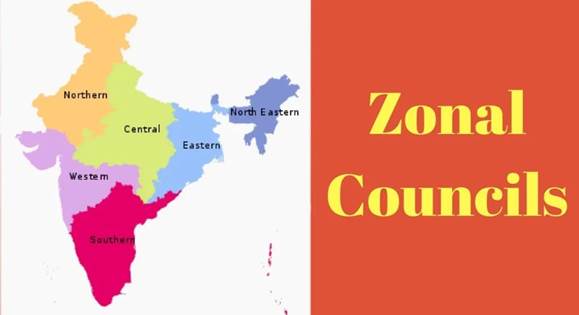Free Courses Sale ends Soon, Get It Now


Free Courses Sale ends Soon, Get It Now



Copyright infringement not intended
In News
Zonal Councils
North-Eastern Council
|
Name Members Headquarters |
|
1. Northern Himachal Pradesh, Haryana, New Delhi Zonal Council Punjab, Rajasthan, Delhi, Chandigarh, Jammu and Kashmir and Ladakh |
|
2. Central Uttar Pradesh, Uttarakhand, Allahabad Zonal Council Chhattisgarh, and Madhya Pradesh |
|
3. Eastern Bihar, Jharkhand, West Bengal and Kolkata Zonal Council Odisha |
|
4. Western Gujarat, Maharashtra, Goa, Dadra Mumbai Zonal Council and Nagar Haveli and Daman and Diu |
|
5. Southern Andhra Pradesh, Telangana, Chennai Zonal Council Karnataka, Tamil Nadu, Kerala and Puducherry |
Significance of Zonal council
https://www.pib.gov.in/PressReleasePage.aspx?PRID=1856527
https://t.me/+hJqMV1O0se03Njk9
© 2024 iasgyan. All right reserved